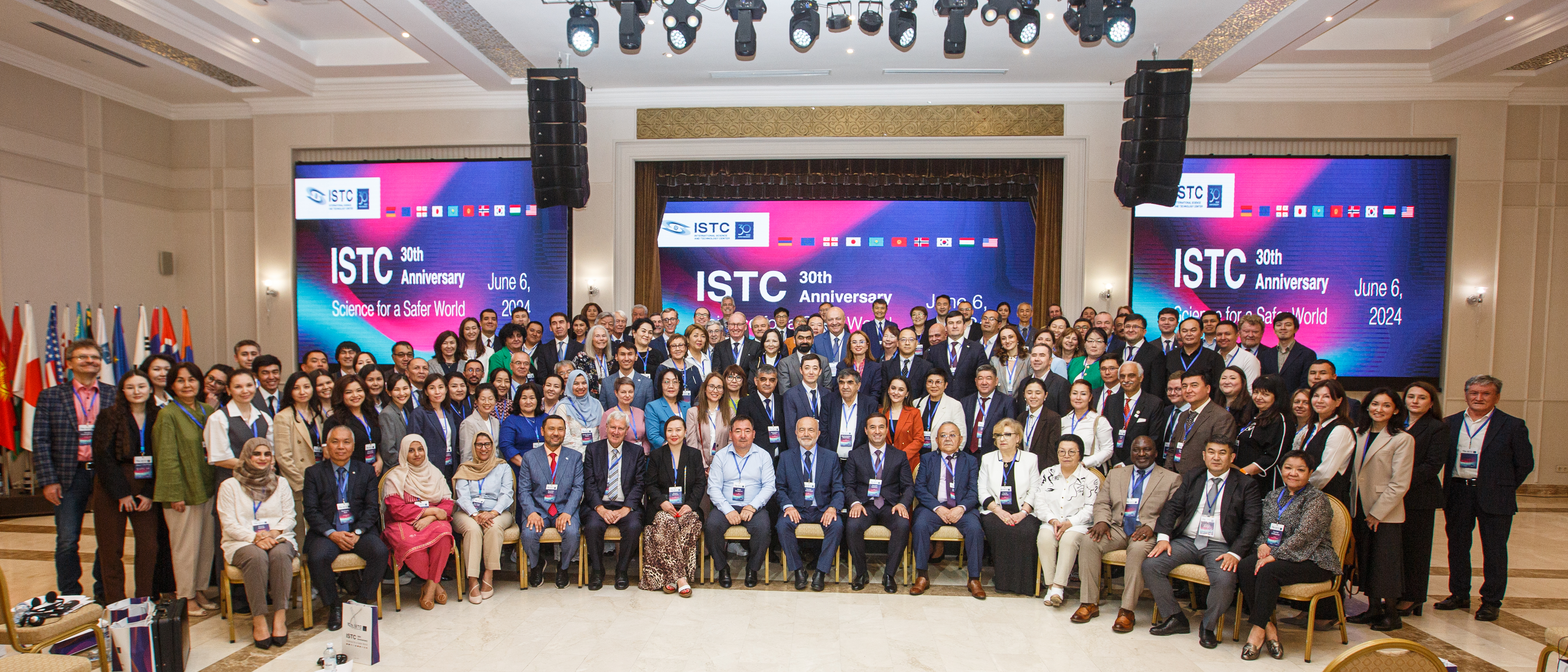ISTC 30th Anniversary event took place in Astana, Kazakhstan

ISTC’s 30th Anniversary celebration ceremony took place in Astana, Kazakhstan, the headquarters of the organization. The theme of the occasion was “Science for a Safer World” to celebrate the work of the ISTC over the past three decades. The event participants took part in several panel discussions reflecting on the unprecedented challenges, dangers and security concerns that the world now faces. The event’s participants included Sayasat Nurbek, Minister of Science and Higher Education of the Republic Kazakhstan and other high level Government Ministry Officials, Government Agenciesas well as distinguished scientists, international organizations, Embassies and officials representing 25 countries worldwide, which included the 10 member countries of the ISTC (Armenia, Georgia, European Union, Japan, Kyrgyzstan, Norway, South Korea, Tajikistan and USA and with host country Kazakhstan).
This year marks the 30th Anniversary since the International Science and Technology Center (ISTC) began operations as a non-proliferation organization to originally redirect former weapons scientists after the collapse of the Soviet Union. The modernization of the ISTC has expanded its scope, increased geographical participation, and enhanced its efficiency to facilitate broader nonproliferation capacity building and research projects for both ISTC countries and partners. The ISTC’s vision is to be the partner of choice in creating, facilitating and expediting impactful world-class multilateral science and technology collaboration aimed at making the world safer, more secure and sustainable. The ceremony was opened by the chairperson of the Governing Board of the ISTC, Dr. Ronald F. Lehman and David Cleave, the ISTC Executive Director, expressing sincere wishes and gratitude. Among the distinguished speakers at the conference were: Fukazawa Yoichi, Parliamentary Vice-Minister for Foreign Affairs of Japan; Judy Kuo, Deputy Chief of Mission, U.S. Embassy in Kazakhstan; and Maciej Madalinski, Head of Political Section, European Union Delegation in Kazakhstan and ISTC Government Partner.
The distinguished representatives added special significance to the event with their heartfelt congratulations and underscored the international cooperation and solidarity that have been instrumental in ISTC's success.
The ceremony played a key role not only in bringing together representatives of the scientific field worldwide, but also reviewing and highlighting the achievements of the ISTC over its 30-year history. Since its establishment, the ISTC, as an intergovernmental and diplomatic organization, continues to foster peaceful scientific research, collaboration, and capacity building to address the global security concerns posed by the spread of knowledge and materials related to weapons of mass destruction, including chemical, biological, radiological, and nuclear substances (CBRN).
Over nearly three decades, the ISTC has engaged with more than 80,000 scientific experts from over 800 research institutions across the Commonwealth of Independent States (CIS) and Georgia and other non-ISTC countries. Since 2015, the ISTC has expanded its projects and activities globally, reaching regions such as the Middle East, East Asia, South America, Africa, Southeast and Eastern Europe, Central Asia, and the Caucasus, encompassing a total of 100 countries worldwide. In 30 years, the ISTC has funded over 4,500 scientific projects with an overall total of more than $1.6 billion in funding, which is a commendable indicator of the prominent and important work that the organization does on behalf of its Parties and Partners.
The 30th anniversary event illustrated the crucial role of the ISTC in maintaining global safety and promoting peaceful scientific studies. In preparing for the future, the organization is determined to further build upon its successes and has embarked on a new 7-year Strategic Roadmap Plan to expand its areas of interest and to bring on board new interested countries with the aim of furthering world security through non-proliferation.

